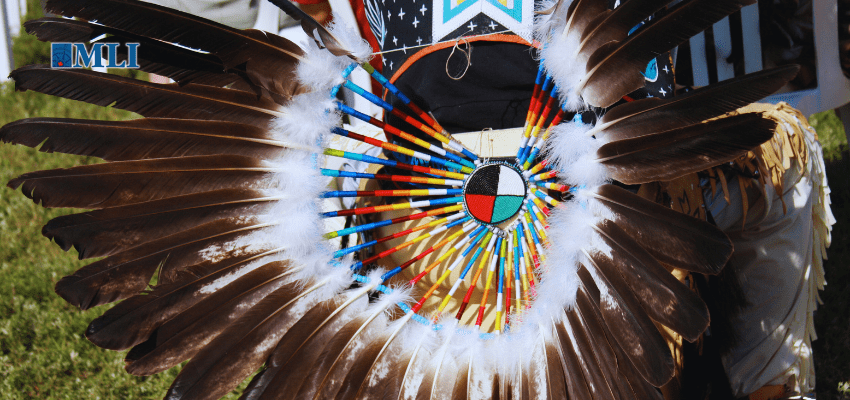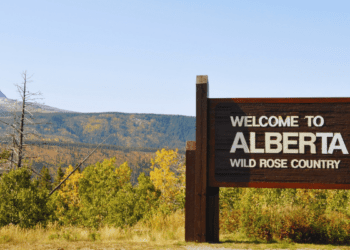This article originally appeared in the National Post.
By Shannin Metatawabin, April 14, 2025
Canada is awash in economic uncertainty. The challenges that existed in January 2025 have been accelerated by the actions of U.S. President Donald Trump. As Canada develops forward-looking strategies, it’s clear that Indigenous peoples must be fully engaged in our national economic revitalization.
All Canadians share concerns about tariffs and the cost of living. Indigenous economic reconciliation may well be the trump card — to waste an easy pun — in Canada’s pursuit of a stable and prosperous economy. Many national leaders talk about supercharging the natural resource economy, a sector where Indigenous people have moved from the sidelines to the boardrooms in a single generation.
For too long, Indigenous peoples have been excluded from national economic conversations, depriving Canada of a remarkable economic revolution. Indigenous energy, infrastructure and tourism businesses are thriving, contributing to economic independence and reduced reliance on government programs. They’re catalysts for social change, building stronger, self-sufficient communities. It’s time for Canada to recognize that Indigenous economic power is a cornerstone of its future.
The numbers don’t lie. Over 500 Indigenous economic development corporations in Canada collectively manage hundreds of millions of dollars worth of assets. They generate hundreds of millions in annual revenue and employ thousands of Indigenous and non-Indigenous people. Indigenous financial institutions (IFIs) — long overlooked by mainstream banks — are now key players in financing Indigenous entrepreneurs. In turn, these business leaders foster economic independence and build wealth in their communities.
For the first time in their history, many communities are experiencing real prosperity. The success stories prove that economic reconciliation isn’t some fantasy. It’s happening, and it’s reshaping the Canadian economy.
At a time when Canada is looking for new economic paths forward, Indigenous businesses are prepared to participate. But the real potential hasn’t yet been tapped. The impact could be much greater if Indigenous businesses receive equitable access to capital, market opportunities and policy support.
Ottawa’s promise that at least five per cent of government contracts will eventually go to Indigenous businesses was a positive first step. But there’s a serious problem: weak enforcement and false claims of Indigeneity have undermined the effectiveness of Indigenous procurement within the federal government. The process for identifying authentic Indigenous businesses must be Indigenous-created and Indigenous-led.
Enter the First Nations Procurement Authority (FNPA). This Indigenous-led organization ensures procurement processes are transparent and that contracts go to legitimate businesses. The FNPA would not only prevent exploitation, but also direct economic growth to the communities where it’s most needed.
Investment in IFIs is also essential. These institutions have already demonstrated their ability to support Indigenous entrepreneurs where traditional financial institutions have failed. Strengthening these organizations with additional supports will provide them with greater access to capital, allowing them to contribute even more to Canada’s prosperity. Empowering Indigenous financial institutions means investing in a sector that has proven its worth.
Cindy Woodhouse Nepinak, national chief of the Assembly of First Nations, demonstrated bold leadership by reaching out to President Trump shortly after his inauguration. She appealed for special attention to the issues of Indigenous groups whose territories cross the Canada-U.S. border. Her message emphasized the need for Indigenous voices in policy discussions that affect both countries.
For generations, Indigenous peoples have fought for a seat at the table. This marginalization must end. Indigenous peoples are no longer passive players. Their economic interests are vital to the prosperity of Canada. The outdated narrative of Indigenous poverty has been replaced with a new reality where First Nations, Métis and Inuit wield significant economic and political power. Indigenous peoples must be fully included in discussions about Canada’s economic future.
Reconciliation cannot be shuffled to the sidelines during times of economic uncertainty. If Canada is serious about long-term stability and emerging stronger from the tariff wars, Indigenous entrepreneurs and financial leaders must be at the table. We are not afterthoughts. We are key partners in shaping Canada’s economic strategy.
The Indigenous business community and political leadership are ready. Yet it is not clear that the country’s politicians, business leaders and institutions fully understand the potential and the determination of Indigenous peoples to be key players in building Canada’s future.
Shannin Metatawabin is CEO of the National Aboriginal Capital Corporations Association and a contributor to the Macdonald-Laurier Institute.
The author of this piece has worked independently and is solely responsible for the views presented here. The opinions are not necessarily those of the Macdonald-Laurier Institute, its directors or supporters. The Macdonald-Laurier Institute is non-partisan and neither endorses nor supports candidates or political parties. We encourage our senior fellows to comment on public policy issues, including during election campaigns, but the publication of such expert commentary should not be confused with the institute taking a position for or against any party or candidate.






